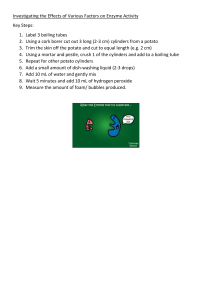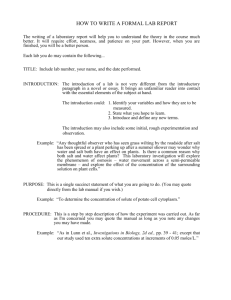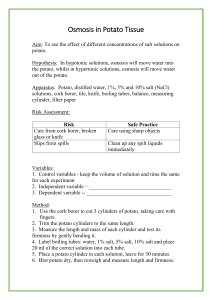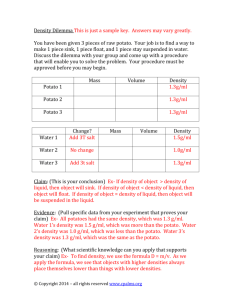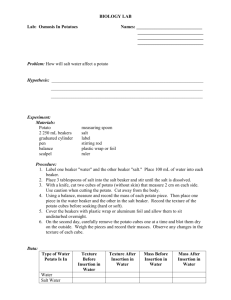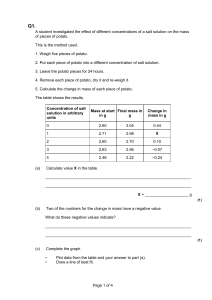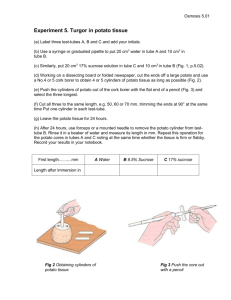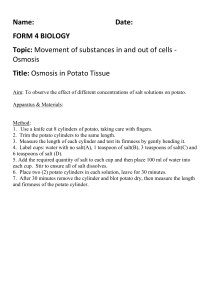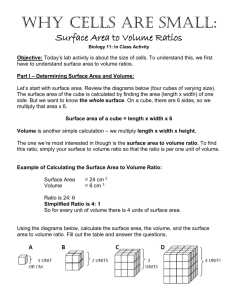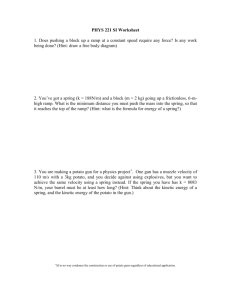Would you like some fries
advertisement
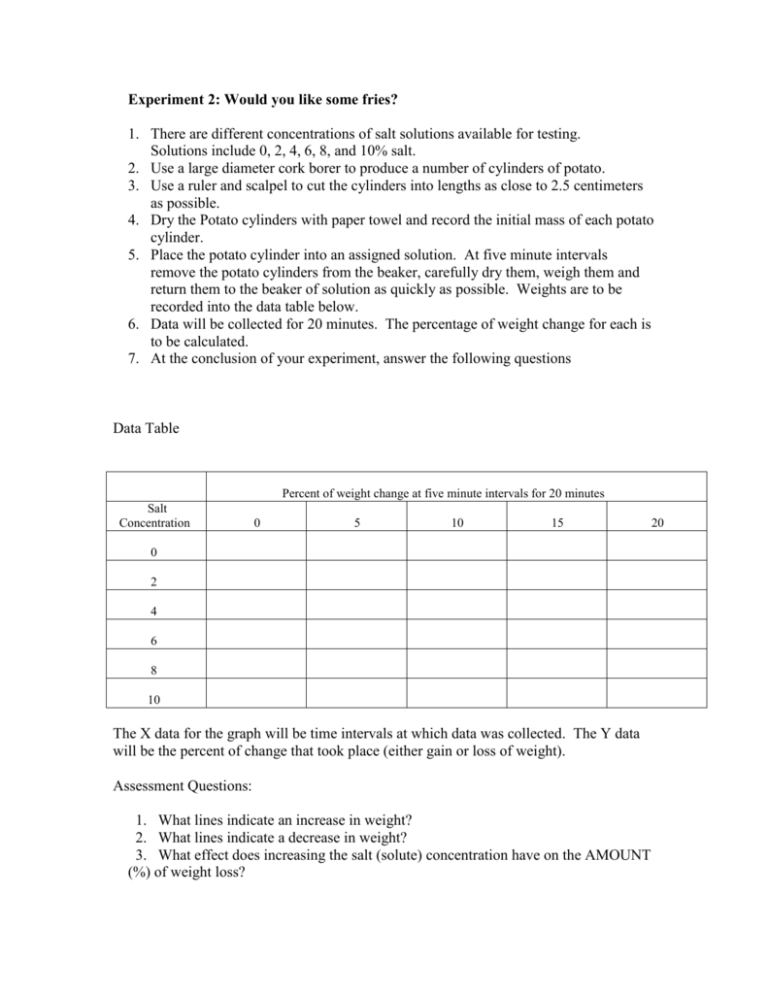
Experiment 2: Would you like some fries? 1. There are different concentrations of salt solutions available for testing. Solutions include 0, 2, 4, 6, 8, and 10% salt. 2. Use a large diameter cork borer to produce a number of cylinders of potato. 3. Use a ruler and scalpel to cut the cylinders into lengths as close to 2.5 centimeters as possible. 4. Dry the Potato cylinders with paper towel and record the initial mass of each potato cylinder. 5. Place the potato cylinder into an assigned solution. At five minute intervals remove the potato cylinders from the beaker, carefully dry them, weigh them and return them to the beaker of solution as quickly as possible. Weights are to be recorded into the data table below. 6. Data will be collected for 20 minutes. The percentage of weight change for each is to be calculated. 7. At the conclusion of your experiment, answer the following questions Data Table Percent of weight change at five minute intervals for 20 minutes Salt Concentration 0 5 10 15 0 2 4 6 8 10 The X data for the graph will be time intervals at which data was collected. The Y data will be the percent of change that took place (either gain or loss of weight). Assessment Questions: 1. What lines indicate an increase in weight? 2. What lines indicate a decrease in weight? 3. What effect does increasing the salt (solute) concentration have on the AMOUNT (%) of weight loss? 20 4. What effect does increasing the salt (solute) concentration have on the RATE OF weight loss? 5. Give a possible explanation as to why the potato LOST weight in part of the experiment. 6. Give a possible explanation as to why the potato gained weight in part of the experiment. 7. Convince me that this experiment was important to your understanding of the concepts of diffusion and osmosis.
